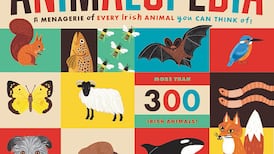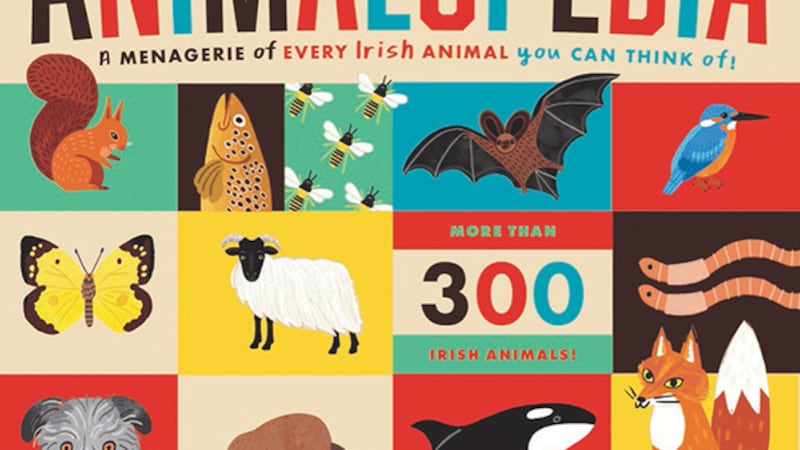
The present writer once asked a poet renowned for his public speaking style what his secret was. The poet’s answer was succinct: speak clearly.
Clarity of thought and expression is a virtue Neil Gaiman has taken as a first principle since his apprentice years in the early 1980s. From high Gothic to English whimsy, from mythic works such as Sandman and American Gods to elegant chamber pieces such as Coraline or The Graveyard Book, Gaiman has worn so many shades of Technicolor dreamcoat that it's almost impossible to read everything he's done, never mind profess allegiance to it.
In three decades he's published comic strips, novels, novellas, graphic novels, short stories, children's literature, verse, screenplays, journalism, television series, Doctor Who scripts, video games, Hitchhiker's Guide handbooks and even a Duran Duran biography. He is, in short, a story machine.

But one thing he has never been is obtuse. Gaiman’s prose always favours congruence and coherence over density and complexity. This is probably why his work is so widely read and easily digested. His tone is that of the odd but kindly uncle explaining, in soothing tones, why you shouldn’t go down into the cellar after dark. Moreover, he never seems to stress or strain or question his own motivations or abilities. Several years ago, over a post-event dinner, Gaiman was asked how he manages to maintain such apparently blithe productivity. His answer was simple. He allows himself a choice: write or do nothing. Eventually the prospect of doing nothing becomes so odious that it makes writing the preferable option.
The View from the Cheap Seats is a hefty testimony to the art of not doing nothing. The first published anthology of Gaiman's nonfiction, it comprises 500-plus pages of essays, speeches, book introductions, reviews, reportage and the occasional interview.
It also shifts the accent from Gaiman the writer (intuitive, musical, slightly mystical) to Gaiman the reader (rational, analytical, critical and evangelistic). Cheap Seats offers him the chance to put shape on some sort of ethos or aesthetic. It also allows him to act as the spirit guide on a tour of his own personal curiosities and concerns, from the politics of comics to the importance of libraries and the evils of censorship. It works in much the same way as Stephen King's anatomy of horror history, Danse Macabre, did: as a talky, friendly index of one man's addictions and obsessions.
Cheap Seats is particularly handy to have around if you need a primer on the early days of comics and speculative fiction, with towering figures such as Will Eisner, Harvey Kurtzman, Jack Kirby, Harlan Ellison, Gene Wolfe, Brian Aldiss, Alfred Bester and Samuel R Delany – the Tuatha dé Danann of the fantasy form.
Gaiman is also good on reframing canonical works. Those who find Edgar Allan Poe's baroque prose a little rich for the eyes, he maintains, should read him aloud. And Bram Stoker's Dracula, he contends, "is a Victorian hi-tech thriller, at the cutting edge of science, filled with concepts like dictation to phonographic cylinders, blood transfusions, shorthand and trepanning . . . It is told entirely in letters, telegrams, press cuttings and the like. None of the people who are telling us the story knows the entirety of what is actually going on. This means that Dracula is a book that forces the reader to fill in the blanks, to hypothesise, to imagine, to presume."
Elsewhere, HP Lovecraft is described as “a resonating wave. He’s rock’n’roll.” Lord Dunsany’s words, meanwhile, sing “like those of a poet who got drunk on the prose of the King James Bible, and who has not yet become sober”.
That's the fantasy stuff. Gaiman proves as adept – maybe more so – with the harsh realities of life, death and displacement. There's a gut-churning dispatch from a Syrian refugee camp in Jordan, published by the Guardian in 2014. There's an elegy for his wife's lifelong friend, Anthony Martignetti, a wise soul who published his stories for the first time while suffering from leukaemia. There's a piece on the white fury that fuelled Terry Pratchett's fiction, and an eloquent and thoughtful essay on the nature of portraiture and photography entitled Wilderness of Mirrors (after Eliot).
There’s also a transparently partial piece of front-row advocacy pop journalism written after seeing his wife, Amanda Palmer, play with the reformed Dresden Dolls for the first time at a Halloween show in 2010: “The . . . strangest thing about the Dolls is that they are, when they play, quite obviously, telepathic, like a couple who can finish each other’s sentences. They know each other and the songs so well that it’s all there, in muscle memory and in their heads and in the subliminal cues that the rest of the world is never going to see. I’d never really got that until now. I’d puzzled over why, if the songs needed a drummer, Amanda didn’t simply go and get a drummer. But drumming is only part of what Brian’s doing. He’s commenting, performing, pantomiming, playing, yin to Amanda’s yang. It’s a remarkable, virtuoso glorious thing to see them play together.”
The View from the Cheap Seats is like the last act of The Wizard of Oz, where the wizard of fictions emerges from behind the curtain to face the even more unforgiving realm of facts. As a book, it's a happy ragbag rather than a definitive statement or manifesto.
A handful of the pieces included seem pithy, slight and short, the vapour trails of a professional writer trying to outrun a deadline. But if you’re facing a long bus ride or a waiting spell in the belly of some bureaucratic beast, I can think of no finer companion. In the end, the book’s dedication, to the author’s infant son, Ash, seems a sufficiently accurate and elegant summation of the reams of dreams contained within: “These were some of the things your father loved and said and cared about and believed, a long time ago.”
Peter Murphy is the author of the novels John the Revelator and Shall We Gather at the River












